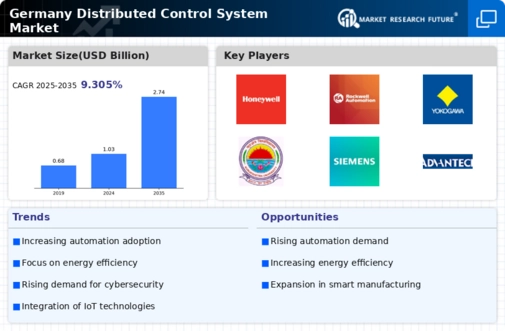Germany Distributed Control System Market Summary
The Germany Distributed Control System Market is poised for substantial growth, projected to reach 2.74 USD Billion by 2035.
Key Market Trends & Highlights
Germany Distributed Control System Market Key Trends and Highlights
- The market is valued at 1.03 USD Billion in 2024, indicating a robust starting point for growth.
- From 2025 to 2035, the market is expected to grow at a compound annual growth rate of 9.3%.
- By 2035, the market is anticipated to expand to 2.74 USD Billion, reflecting increasing demand.
- Growing adoption of automation technologies due to the need for enhanced operational efficiency is a major market driver.
Market Size & Forecast
| 2024 Market Size | 1.03 (USD Billion) |
| 2035 Market Size | 2.74 (USD Billion) |
| CAGR (2025-2035) | 9.3% |
Major Players
Keystone Automation, Honeywell, Rockwell Automation, Yokogawa Electric, KUKA, Siemens, Advantech, Emerson, General Electric, Phoenix Contact, Softing, B and R Industrial Automation, Mitsubishi Electric, Schneider Electric, ABB






















